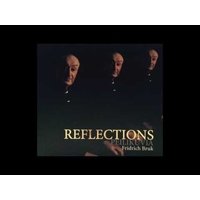 Staff and students at the Royal Conservatoire of Scotland have a wide array of electronic resources to enhance their teaching and learning. But what if you're not on campus today? Our e-resources can generally be used at home as well - no problem. And if you do encounter an access problem? It's usually just a question of knowing how to login off-site. We have instructions on the library portal pages.
Staff and students at the Royal Conservatoire of Scotland have a wide array of electronic resources to enhance their teaching and learning. But what if you're not on campus today? Our e-resources can generally be used at home as well - no problem. And if you do encounter an access problem? It's usually just a question of knowing how to login off-site. We have instructions on the library portal pages.
Easy Offsite Access:-
- Log into the Portal
- Look for the Library pages
- Look for the Offsite Access Guides
The Portal looks different for students and staff:-
STUDENT PORTAL Log into the Portal
Once you get to the list of links, click on 'Offsite Access Guides for E-Resources'
Please contact the library if you need further help getting into your chosen resource.
---------------------------------------------------------------------------------------------
Once you get to the list of links, click on 'Offsite Access Guides for E-Resources'
Please contact the library if you need further help getting into your chosen resource.
























